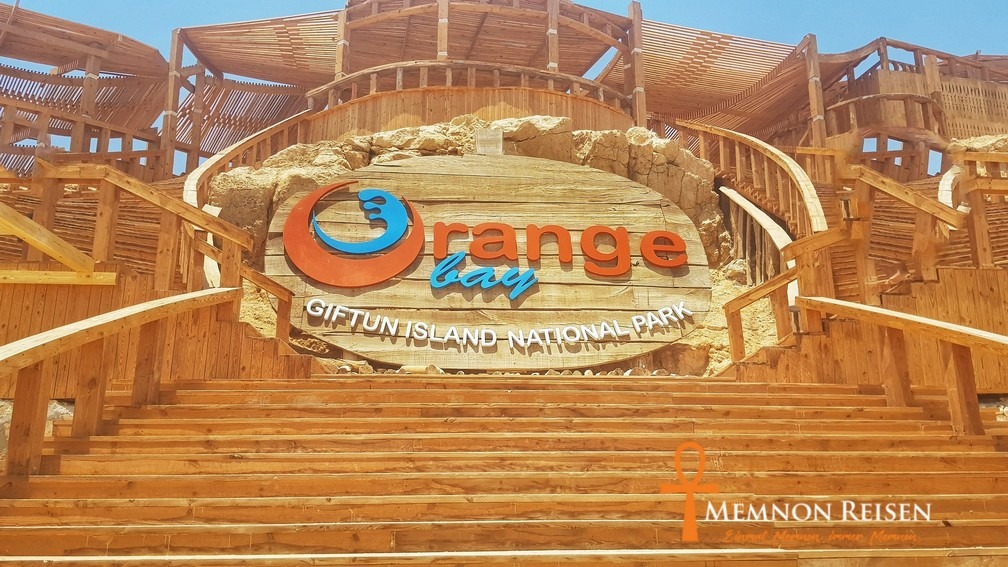Plan Your Trip to Egypt
Egypt is one of the most popular and most chosen travel destinations – not only for sunbathing and water sports lovers visiting beach resorts and luxurious all-inclusive hotels! In addition to vast sandy beaches and the warm Red Sea, travelers will also find vibrant cities full of monumental architecture and colorful markets, countless archaeological sites like pyramids, temples, tombs of great pharaohs, statues, and obelisks. Adventurers will appreciate desert safaris, overnight stays in Bedouin villages, and evening storytelling around the fire under a magical starry sky. Whatever you’re looking for, a trip to Egypt will bring you great joy and provide many memories and reasons to return again in the coming years!
You need to know how to prepare for a trip to Egypt and what to be aware of before traveling to Egypt to have the best possible experience. So, if you’re planning a trip to Egypt, we’ve got a wealth of useful information for you.
When Should You Travel to Egypt?
A look at the world map shows that Egypt is a very large country spanning different continents and climate zones. There are two main seasons – a mild winter and a hot summer. You can plan a trip to Egypt almost all year round: even in the cooler months, the sea temperature remains relatively high, and Egypt’s weather is pleasant with daytime temperatures over 20°C and sunshine. The biggest temperature differences occur inland, where there can be over 20°C difference between day and night, and in winter, temperatures can drop to around 5°C (41°F). On the hottest summer days, it can reach up to 40°C in the south – during this time, it’s best to relax along the Red Sea coast.
Visa for Egypt
If you’re planning a trip to Cairo, Egypt, a tourist visa is required for all travelers – either single-entry ($25 USD) or multiple-entry ($60 USD). You can apply for the visa through this website: www.visa2egypt.gov.eg. You must also have a passport valid for at least six months beyond your entry date. If you plan your vacation with Inside Egypt, we’ll inform you about how to prepare and provide up-to-date information on entry requirements and visas. However, the formalities must be completed by you or through a visa agency.
Hand Luggage
What you should know before traveling to Egypt: When packing your hand luggage, keep your passport and visa money in an easily accessible but secure spot, safe from pickpockets. Even though Egypt is a hot country, it can be cold at the airport or on the plane. A phone charger might also come in handy. In addition to your usual hand luggage items, consider pandemic-related essentials like one or two face masks, antibacterial gel, and disinfectant wipes. Wash your hands frequently and disinfect any items bought at the airport.
Vaccinations Before Departure
No mandatory vaccinations are required for entry into Egypt. However, as with almost any international travel, standard vaccinations for Hepatitis A and B, typhoid, polio, and tetanus are recommended. There’s no risk of malaria in Egypt and no need for malaria prophylaxis, but it’s worth bringing insect repellent – even harmless mosquitoes can make your vacation uncomfortable.
What to Pack for Egypt
When planning a trip to Cairo or any other Egyptian city, there are a few essentials you shouldn’t forget. A travel checklist for Egypt can help ensure you have everything you need. All previous Covid-19 restrictions have been lifted, so you don’t need to present a negative PCR test or vaccination certificate anymore.
Once the necessary paperwork is done, you can start packing. The list isn’t much different from other travel destinations – some items are universal. For a sunny vacation in Egypt, sunscreen with a high SPF, a hat, and sunglasses are a must. If you plan on exploring, bring comfortable clothes suitable for visiting temples or religious sites – respect the local culture and religion.
Beachwear is fine at resorts and hotels, but on outings, avoid shorts and revealing tops.
Must-sees on any Egypt pyramid tour are, of course, the majestic pyramids. Other popular activities include swimming in the sea and admiring coral reefs. If you plan to spend a lot of time in the water, bring your own mask, goggles, or fins – and wear water shoes, as sharp corals can be dangerous. A waterproof case is also recommended for underwater photos. Egypt uses standard power outlets, so you usually won’t need a travel adapter.
Snorkeling day trip 🤿 to a coral reef in Orange Bay Hurghada.
The Orange Bay excursion program includes 2 snorkeling courses, 2 hours of free time on Orange Island, lunch, fruit, drinks and water activities such as quad, sofa and banana boat.
Day trip for snorkeling and swimming with dolphins in the Red Sea.
The excursion program includes 2 snorkeling courses and 1 stop at Dophin House for swimming with dolphins up close, lunch, fruit and drinks.
Safety in Egypt
Many foreign ministries advise caution in certain regions and recommend organizing your vacation through reputable Egyptian travel agencies. Security is tight in many tourist areas, which are considered safe. Still, basic precautions should be taken – minor theft, scams, or extortion can occur, just like anywhere else. Egypt and Tunisia are the most popular African travel destinations – nearly 14 million visitors came in 2019.
Currency in Egypt
The local currency is the Egyptian Pound (EGP), divided into 100 piastres. Banknotes come in 1, 5, 10, 20, 50, 100, and 200-pound denominations, and there are also 1-pound coins. Check exchange rates at the Central Bank of Egypt. The best currencies to exchange are EUR or USD. You’ll find ATMs or exchange offices in cities, and you can often pay in EUR/USD at tourist spots – always check the exchange rate. Credit cards are accepted in most shops and restaurants.
Two tips: First – bargain! Listed prices are often negotiable. Second – tipping (“baksheesh”) is almost mandatory. Keep small change for staff, drivers, or guides – tipping is expected everywhere, even among locals.
Where to Stay
A trip to Egypt is also a cultural journey – fascinating monuments, deserts, and white Red Sea beaches. Our 10-day Egypt tour includes exactly these experiences, including stays at top hotels. Your hotel is more than just accommodation – it’s part of the experience. We work with luxury 5-star hotels like Marriott Mena House, Four Seasons at First Residence, and Nile Ritz-Carlton in Cairo. For Nile cruises, we use luxurious ships such as MS Le Fayan or similar. Our packages, like the 8-day Egypt tour, are more affordable than booking individually and include accommodation.
Internet in Egypt
Internet access is usually available in hotels but may be slow or come with a fee. You can buy a prepaid SIM card at the airport (about $10 for a few GB, about $20 for over 20 GB) – also available in malls and from local vendors. Major providers include Vodafone, Etisalat, and Orange.
Egyptian Cuisine
A vacation in Egypt is a culinary treat! The rich cuisine blends Arabic, Turkish, Greek, and Jewish influences. Basic ingredients include rice, beans, and chickpeas. Hummus, pastes, and sauces with vegetables or meat are seasoned with parsley, mint, ginger, coriander, or turmeric. Pork is rare, but beef, lamb, and grilled chicken are very tasty.
Popular dishes: kebab, kofta (meatballs), and koshari (rice, lentils, noodles with spicy tomato sauce). Adventurous eaters may try stuffed pigeon. Sweets include pistachio pudding, honey-drenched pastries, almond treats, coconut, dried fruits, and butter cookies. Coffee and tea are strong, sweet, and aromatic – and everywhere. Enjoy!
Alcohol in Egypt
Alcohol is not available in regular shops or supermarkets. In Cairo, you’ll find bars, pubs, discos, and restaurants serving beer, wine, or spirits. Upscale hotel restaurants also serve alcohol. Remember: Egypt is a Muslim country – alcohol isn’t widely available, and drinking in public is illegal. In places like Aswan, alcohol is hard to find. A great opportunity for a detox during your trip.
Sightseeing in Egypt
Cairo – Egypt’s capital, Africa’s largest city, and a center of Islamic culture with over 20 million people. History goes back to 3000 BC. Key highlights: the Giza Pyramids (Khufu, Khafre with Sphinx), Saqqara (Djoser’s step pyramid). A recommended city tour includes the Egyptian Museum, Al-Azhar Mosque, the Alabaster Mosque, Cairo Tower, and many markets and bazaars.
Alexandria – founded by Alexander the Great, once a center of ancient science. Today Egypt’s second-largest city and a major port with Mediterranean charm. Visit the National Museum, the new library (since 2002), Fort Qaitbey, the Corniche promenade, catacombs, Roman amphitheater, and the Italian-style presidential palace.
Aswan – key city in Egypt’s hot south, famous for the High Dam. Highlights: Abu Simbel and the Philae Temple (relocated due to the dam), Nile cruises, Lake Nasser, Nubian villages, and ancient ruins.
Luxor – former Theban capital on the Nile with temples, palaces, and tombs. Visit Luxor Temple (near Karnak), the Valley of the Kings (tombs of Ramses II and Tutankhamun), the Temple of Hatshepsut, and the Colossi of Memnon.
Hurghada & Red Sea – top destination with great weather, family-friendly attractions, water sports (snorkeling, diving), and lively nightlife. International airport on the outskirts; nearby resorts include Safaga and Marsa Alam.
Sinai Peninsula – resort town Sharm el Sheikh with beautiful coral reefs and wide-ranging tourism. Visit biblical Mount Sinai (2,285 m) and Saint Catherine’s Monastery, explore trekking routes, and UNESCO heritage sites.
Is a Nile Cruise Worth It?
Yes! A luxury Nile cruise is a must during your Egypt vacation. You travel comfortably while sightseeing temples and tombs carved in rock. From the upper deck, watch village life and nature. Evening entertainment includes Arabian nights, Galabeya parties, or live music. For longer stays, cruises from Cairo to Aswan are available.
The cruise from Luxor to Aswan (or vice versa) takes 3 to 7 days, depending on your vacation length. The longest round-trip offers many discoveries and relaxing days on board.
Stops include Luxor (Thebes), Edfu, Kom Ombo, and Aswan. From Aswan, you can visit Abu Simbel – highly recommended: the temples of Ramses II and Nefertari were relocated in the 1960s through a UNESCO-led initiative due to the dam construction. The 290 km journey is part of an unforgettable adventure.
Egypt is a fascinating and popular travel destination. Good preparation reduces stress and avoids unpleasant surprises. A trip there is easy to plan and offers extraordinary experiences, breathtaking landscapes, and unique monuments. Now all you need to do is book a luxury trip with us, organize your flights, create a travel planner, and make your personal packing list.






